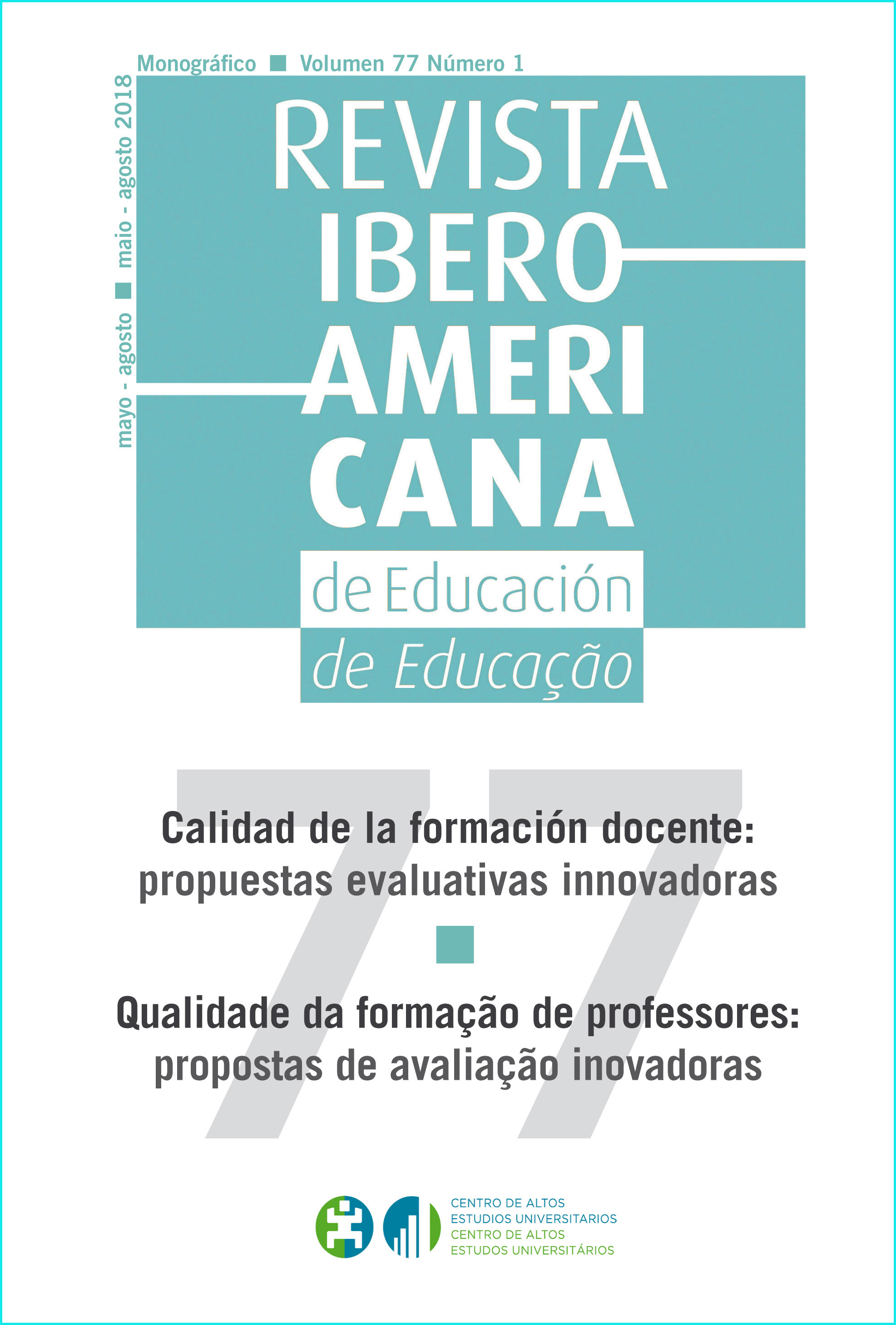Teaching training in higher education: its relationship with institutional assessment
DOI:
https://doi.org/10.35362/rie7713026Keywords:
higher education; teaching training; institutional assessmentAbstract
This article discusses the impact of the Continuing Education Program of an institution in the South of Brazil, UNIVALI, on teacher’s practices, identifying whether there is any relationship between these practices and continuing education. Qualitative and quantitative methods were used in this research. The data collection instruments were: a) average number of hours that the teachers spent in the Continuing Education Program; b) average scores in the Institutional Assessment, which assesses teaching practice; and c) the subjects taught by the teachers. Data were collected in the period 2011-1 to 2017-1. Data were analyzed for 69 teachers, out of approximately one thousand teachers of the institution. The selection criteria was that the teacher must have participated in the training in all the semesters during this time period, and have received an assessment score by the students during those same semesters. The main theoretical background used to discuss the data was based on Nóvoa (2000), Sá et al.(2017), and Franco (2016), among other authors. In the results, we see that the level of participation of the teachers in the Continuing Education Program has increased. Although the number of training hours required by the institution has decreased over the years, the adhesion of teachers to the program has increased. We identified that 100% of the teachers had increased the number of hours spent on pedagogical topics. Concerning the institutional assessment, the scores for teaching practice attributed by the students ranged from 8.3 to 8.7. Of the 69 teachers who made up this sample, only three scored below 7 and above 6. In other words, 95.66% scored more than 7. None of the teachers scored below 6.
Downloads
References
Castro, C. de M.; Navarro, J. C. (2017). Will the invisible hand fix private higher education in Latin America? Ensaio: aval.pol.públ.Educ. 25(96), p.770-797, jul/set. Rio de Janeiro.
Ferri, C.; Duarte, B.K. da C.; Neitzel, A. de A.; Uriarte, M. Z., Sousa, N. de. (2017). Relatório de avaliação institucional na educação superior: a atuação do docente em foco. Vice Reitoria de Graduação. Universidade do Vale do Itajaí, SC, Brasil.
Franco, M. A. S. (2016). Pesquisa-Ação Pedagógica: práticas de empoderamento e de participação. ETD - Educação Temática Digital, 18(2), pp. 511-530, abr./jun. Campinas, SP.
Gatti, B. A. (2000). Avaliação institucional e acompanhamento de instituições de educação superior: estudos em avaliação educacional. São Paulo: Fundação Carlos Chagas, vol. 21.
Kupiec, A.; Neitzel, A. de A., & Carvalho, C. (2016). A mediação cultural e o processo de humanização do homem. In A. Neitzel & C. Carvalho (Eds), Mediação cultural, formação de leitores & educação estética (pp. 23-36). Curitiba: CRV.
Nóvoa, A. (2000). Universidade e formação docente. Interface - Comunic, Saúde, Educ. [online], Botucatu, vol.4, n.7, aug. Entrevista concedida às professoras Miriam Celí Pimentel Porto Foresti e Maria Lúcia Toralles Pereira. http://dx.doi.org/10.1590/S1414-32832000000200013.
Nunes, E. B. L. de L. P.; Trombini, M. M. S. L. D.; Pereira, I. C. A. (2017). Planejamento e avaliação institucional: um indicador do instrumento de avaliação do SINAES. Avaliação, 22(2), pp. 373-384, jul. Campinas; Sorocaba, SP.
Pryjma, M. F.; Oliveira, O. S. de. (2016). O desenvolvimento profissional dos professores da educação superior: reflexões sobre a aprendizagem para a docência. Educ. Soc. 37(136), pp 1-17, jul/set. Campinas.
Sá, E. F.; Quadros, A. L. de; Mortimer, E. F.; Silva, P. S.; Talim, S. L. (2017). As aulas de graduação em uma universidade pública federal: planejamento, estratégias didáticas e engajamento dos estudantes. Rev. Bras. Educ. 22(70), pp. 625-650, jul/set. Rio de Janeiro. https://dx.doi.org/10.1590/s1413-24782017227032
Stano, R. de C. M. T. (2015). O caminho de um grupo de formação continuada docente: do compartilhamento de práticas docentes para uma pedagogia da e para a autonomia. Educar em Revista, n. 57, p. 275-290, jul./set. Curitiba.
How to Cite
Downloads
Published
Issue
Section
License
Any authors who publish with this journal accept the following terms:
















